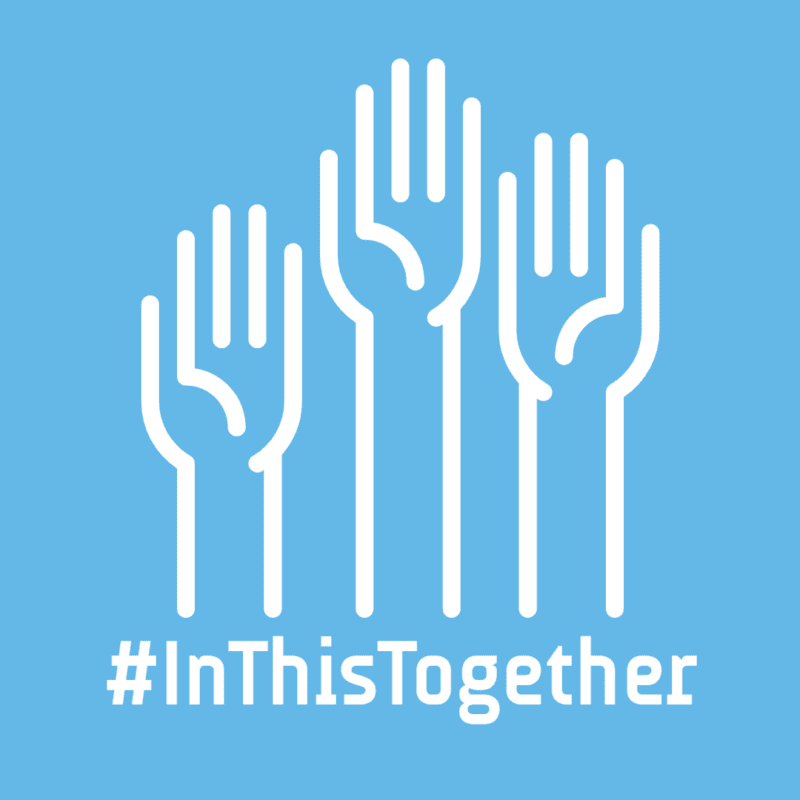As part of our #InThisTogether strategy, ATTFE College is proud to offer a range of courses designed to promote safe and inclusive communities and environments.
Our courses cover a diverse range of topics, providing learners with the knowledge and understanding needed to support good practice. With our courses, learners can feel confident in their ability to make a positive impact in their communities.
To register for these courses, you’ll have to be aged 19 and above and has lived in the EU for at least 3 years at the start of the course.
Once you’re registered to one of these courses, you’ll have access to our Online Learning Portal where you will find your modules and their assessments, which will have their own due dates. There will be no exams.

Available Online Learning Courses
Please click on each course title to reveal more information.
Challenging behaviour is the causing increasing concern today as many individuals have increasing levels of stress and uncertainty in their lives. This behaviour can be due to factors such as anxiety, neglect, abuse, learning disabilities, and conditions like dementia.
You’ll understand a variety of behaviour that challenges, how to support positive behaviour, the importance of effective communication and the management of those behaviours, and the role of reflection and support for those involved in incidents of behaviour that challenges.
Offering clear and accurate information, advice, or guidance and knowing what can be shared legally and professionally can greatly improve outcomes for a business. There are some fundamental rules for successful information sharing and ensuring staff are aware of these is key.
You will learn about equality and diversity within society, community, and the workplace.
The purpose of this qualification is to support anyone who is responsible for the safeguarding of people and for helping prevent radicalisation. It gives learners an understanding of recognising the signs of abuse, how to reduce the risk of radicalisation, and the potential consequences of illegal online activity.
You will gain an understanding of the prevent duty, safeguarding, and online safety.
Having a learning difficulty means that people find it harder to learn certain skills. As this affects around 15% of people, it is important for those working in healthcare, social care, and education to have knowledge of different Specific Learning Difficulties such as ADHD, dyslexia, and dyscalculia.
You will gain an understanding about specific learning difficulties, the effects and diagnosis of specific learning difficulties, and how to properly support individuals with specific learning difficulties. In addition. you’ll learn about the context of specific learning difficulties.
Autism is a spectrum condition that affects how a person communicates with others and how they interpret the world around them. Having a clear understanding of the misconceptions, diagnoses, and support surrounding autism are just some of the essential skills needed when working in mental health.
You will get an introduction to autism, and learn how to use person-centred approach to support individuals with autism. You’ll also learn how to communicate and conduct social interactions with individual with autism, sensory processing, perception, and cognition in individuals with autism. Additionally, you will learn how to support positive behaviour in individuals with autism, and support them to live a healthy and fulfilled lives.
Around 1.5 million people in the UK have a learning disability. Owing to the fact that they are likely to find it more difficult than others to describe their symptoms, a good knowledge of legislation and the healthcare system, as well as an understanding of signs and symptoms of various conditions, is essential for anyone working with individuals with learning disabilities.
You will learn the principles of safeguarding and protection in health and social care, positive risk-taking for individuals with disabilities, supporting individuals with a learning disability to access healthcare. You’ll also understand the context of supporting individuals with learning disabilities, whilst getting an introduction to personalisation in social care, and awareness of autistic spectrum conditions.
This qualification is for anyone who has a responsibility to respond to domestic abuse or support those experiencing domestic abuse. This includes employers, teachers, health and social care workers, and anyone involved in safeguarding vulnerable adults, children or young people.
You will understand what is domestic abuse, the signs and risk factors associated with domestic abuse, the impact of domestic abuse, and the policy, response, and intervention in relation to domestic abuse.
Autism is described by The National Autistic Society as a complex, lifelong developmental disability that typically appears during early childhood and can impact a person’s social skills, communication, relationships, and self-regulation. Individual preference regarding terminology used for an individual on the autism spectrum may vary and must be valued and respected.
You will learn how to adopt a positive approach to supporting individuals with autism, the current legislative framework relating to individuals with autism and how different theories develop overtime, how to support and manage transitions for individuals with autism, the range of therapeutic interventions and support available, how to support communication and social interaction of individuals with autism, and how to develop an understanding of how individuals with autism may be vulnerable and the support workers role and responsibilities relating to safeguarding according to legislative requirements.
If you require more information or would like to register to one of our online courses, please email college.info@attrust.org.uk or call 01623 441310. Kindly quote the course code when enquiring so we can better assist you.









